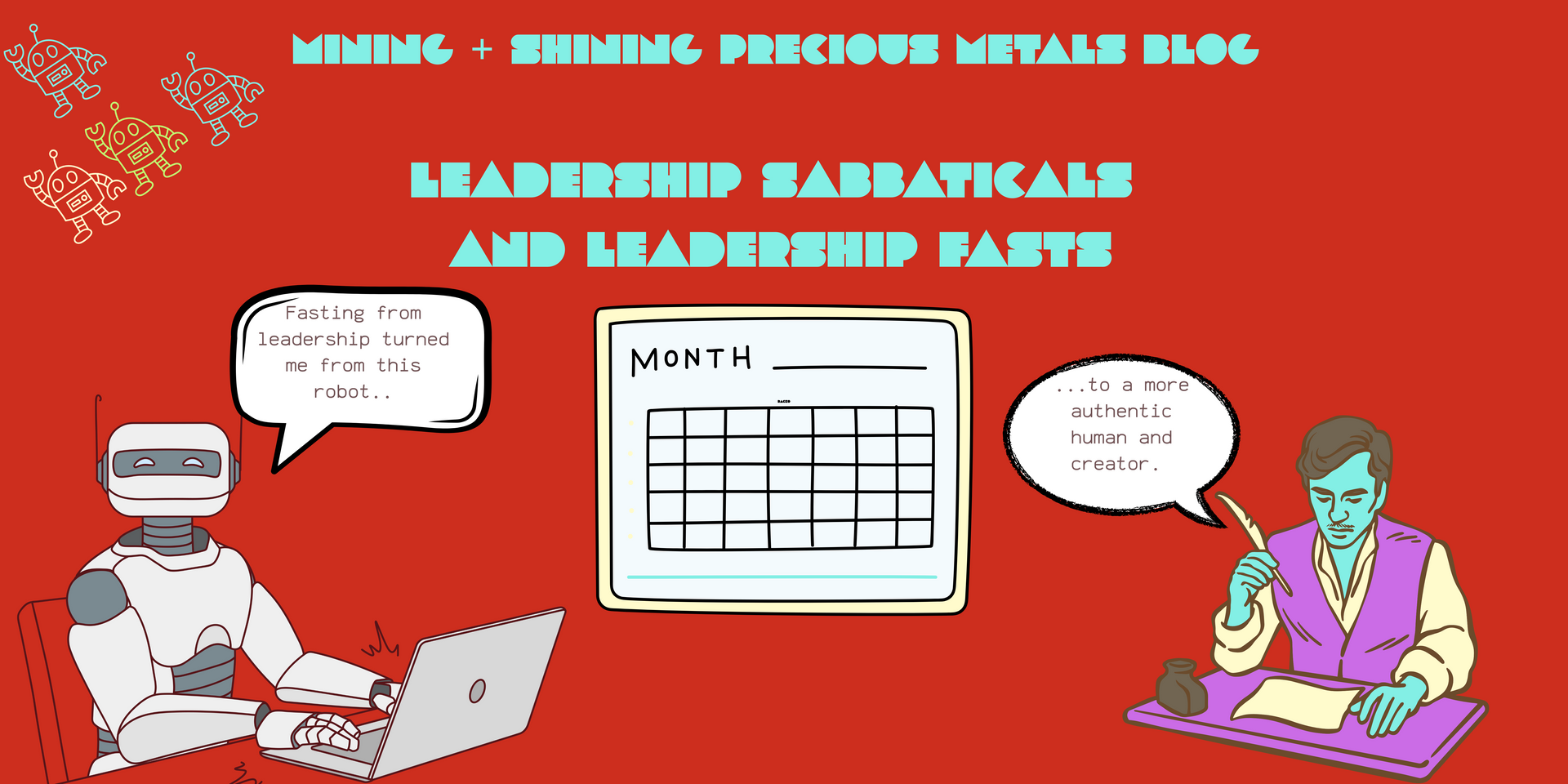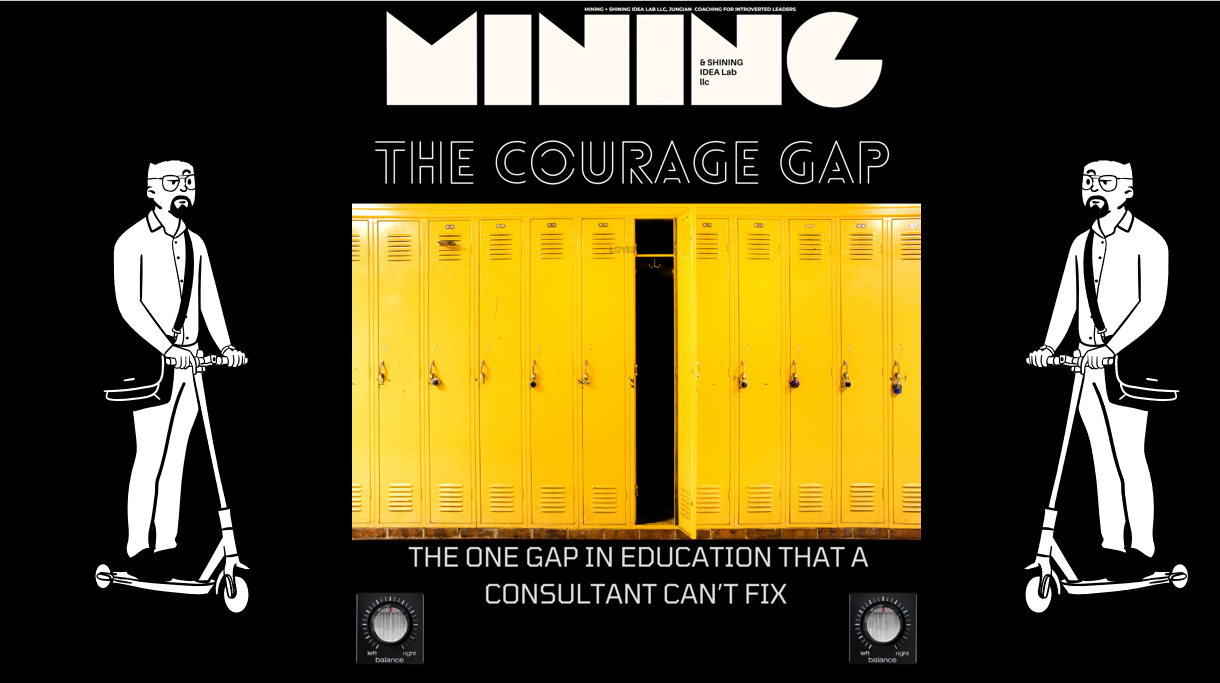Fasting from Leadership and Other Self-Inflicted Sabbaticals
What are you doing to renew, relearn, and reprioritize?

I remember listening to an interview between Tim Ferris and Jerry Colonna, the famed CEO coach. I was excited to listen to the conversation as Jerry's book Reboot set the stage for me to enroll in an ICF program for Jungian Coaching. During the interview, I learned that Jerry goes on sabbaticals to recharge, refresh, and rejuvenate. It helps him be a better coach, a more present human, a better father, and loyal friend.
From June- November, I fasted from leadership and focused my energy on becoming a Jungian Coach and to review and study leadership and charter schools-- where I've spent the last 14 years of my life. While I’ve not taken time off to rest, per se, fasting from educational leadership– has been a powerful experience. Stepping away does helped me feel rested, but also allows newer perspectives to emerge as I worked through my days.
Many of the insights and learnings helped me identify an organization I could serve authentically while also finding ways to apply lessons from my six-month hiatus and fast . Some of those changes are based on a series of talks I posted on my YouTube Channel-- The Courage Gap.
The channel itself is not for the faint of heart nor is it entertaining-- but it served its purpose in helping me readjust.
One of those perspectives is,
why don’t more organizations prioritize sabbaticals or leadership fasts for leaders?
In my day industry, an 8-week sabbatical, on a cycle of three-years, could do wonders for school leaders, district leaders and network leaders alike.
Yes, there’s the rest and rejuvenation element– but there’s also the perspective you gain about yourself, the people around you and the field of education with all of its complexities and nuanced challenges.
Sometimes engaging in the day-to-day , the urgent, and the tactical just doesn’t allow enough space to evaluate current tactics and strategies – and so we continue on autopilot, and sometimes get burnt out. Allowing leaders a sabbatical helps them observe the sector from a distance, and more objectively. With that comes new opportunities to do things better and differently because you take the time to see things that way.
And the public doesn’t necessarily need to foot the bill for school leader sabbaticals. There are a lot of creative people in the world, and I’m sure there’s some finance team that could build a fast growing fund for leaders to invest in their sabbaticals in some pretax way.
We just have to think differently.
If that’s not possible, although I think it is, then engaging in leadership micro-fasting by visiting another district , network and city works just fine.
When I was a principal and principal manager, I made it a point to visit another city and other schools just to reset, learn, and contribute.
Here’s why it was valuable:
- It’s an incentive: In order to do one of these trips to another network , school , and city, it’s imperative to make sure your own school is running well. You can’t really be absent from your school if it’s not running at a high level. This is just not just because it’s the wrong thing to do, it’s also because you want to be fully present on these trips. If you are receiving calls and texts because things have gone awry, it’s just too hard to focus.
- Learning: There’s nothing better than visiting another school and walking with different leaders– especially if their model and program is different than yours. In fact, it should be a little different– even a lot different-– because new knowledge happens when we evaluate the differences between what we know and what we encounter. Plus the perspective of other leaders is valuable.
- Contribute and Connect: Any time I’ve done a visit to another school, other leaders ask for feedback or some kind of debrief. It’s a generous exchange for everybody AND you just connected with somebody whom you can email in the future with a question.
So this week, ask yourself what you’re doing to renew, reflect and learn. It’s important and could save your career.
But if you want more of a cognitive and spiritual workout that affords reflection, renewal and learning, Jungian coaching might be for you. It will help you become more creative, unstuck and may change your perspective on a lot of things– with that comes opportunities. Additionally, it helps you step away from the urgent, to settle in, to think, and to re-evaluate. So, it’s kind of like a micro-sabbatical every couple of weeks. You deserve at least that, don’t you? Email me at
james@miningandshining.com for a free Resilience Assessment OR persona assessment and a consultation.
Precious Metal Notes


